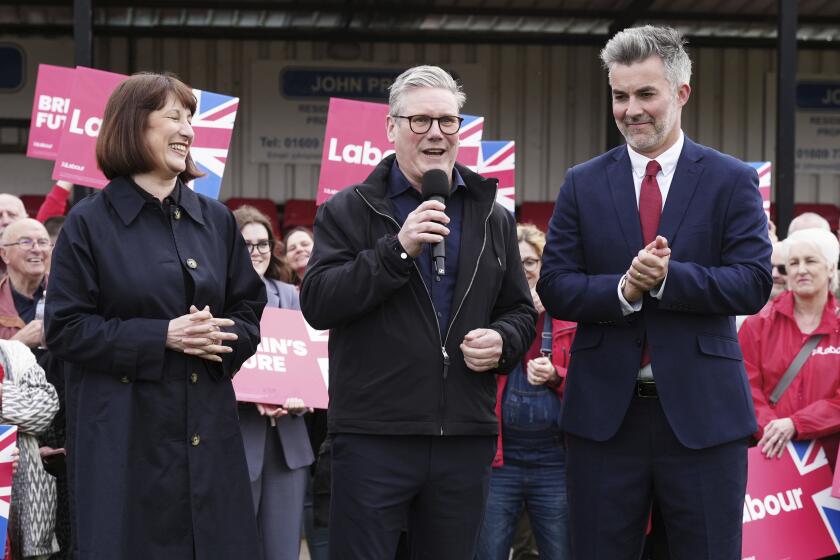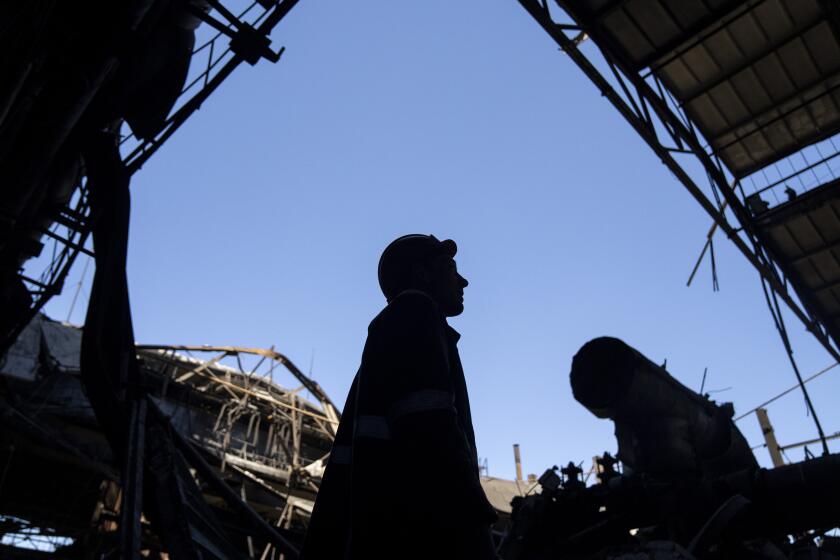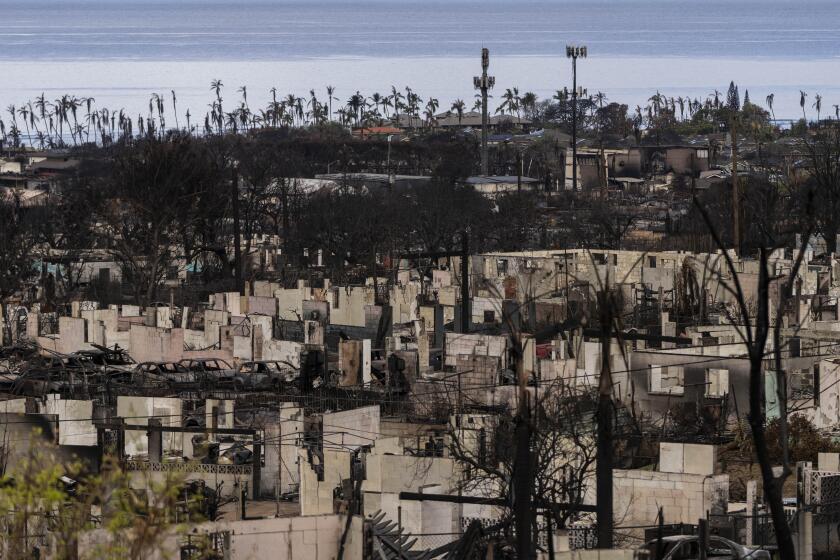Black Pastors Criticize Bush on Aid to Africa
Several influential black pastors who were recently courted by Bush administration officials as potential partners in crafting African relief policies are now questioning the White House commitment to the continent.
The criticism came in a letter delivered Tuesday to the White House from five of the nation’s most high-profile African American pastors. They called on the president to give his “ardent” support to a proposal by British Prime Minister Tony Blair under which industrialized nations would double their aid to Africa by 2010. Bush rejected the proposal last week and announced that the United States would release a smaller sum, already appropriated by Congress, for aid to Africa.
The letter exposed a potentially damaging wrinkle in what has been an aggressive outreach strategy by White House officials, who view socially conservative black religious leaders as potential allies in policymaking and domestic politics.
Bush’s rejection of the Blair proposal sent a different message on African aid from what some pastors felt they had received during an hourlong session last month with Secretary of State Condoleezza Rice. In that meeting, Rice and about two dozen pastors discussed giving U.S.-based black churches a broader role in combating AIDS in Africa.
The pastors’ letter also marked the second time this week that the administration has faced public criticism over its Africa policy. On Monday, leaders of several African nations told Bush at an Oval Office meeting that bureaucracy was delaying the delivery of needed relief funds through one of the president’s signature programs, the Millennium Challenge Account.
“Some were confused by the fact that Prime Minister Tony Blair, who stood with the president on Iraq at enormous political cost to himself, did not appear to be receiving the same level of concrete support from the president when it came to Africa,” said the Rev. Eugene Rivers, a Boston pastor who backed Bush’s reelection last year and was one of the religious leaders who conferred last month with Rice. “It is our hope that the president will stand with the prime minister as strongly as the prime minister stood with him at the height of the controversy over the Iraq war.”
The letter was initiated by Bishop Charles E. Blake of the 24,000-member West Angeles Church of God in Christ in Los Angeles. It was also signed by Rivers, Bishop T.D. Jakes of Potter’s House ministry in Dallas, Bishop Eddie Long of New Birth Missionary Baptist Church near Atlanta and the Rev. Frank Madison Reid III of Bethel AME Church in Baltimore.
Former Atlanta mayor and United Nations Ambassador Andrew Young, a longtime Democrat who stunned some pastors last month when he attended the State Department meeting and offered an emotional tribute to Rice, also signed the letter.
The pastors hope to draw at least 1,000 of their peers to sign the letter, but so far the signatories represent only a fraction of the black pastors who met with Rice and have been heavily courted by Bush and his advisors since the 2000 election.
The pastors’ letter noted that the Bush administration had tripled U.S. aid to Africa but said the effort “pales in contrast” with the billions of dollars devoted to tax cuts and to the wars in Iraq and Afghanistan under Bush’s leadership.
A White House spokeswoman, Erin Healy, declined to say Tuesday whether Bush would grant the pastors a meeting, as they had requested. Healy said Bush was committed to having the U.S. play a leading role in combating AIDS in Africa.
Bush last week did agree with Blair and the other leaders of the Group of 8 industrialized nations to cancel the debt owed by some of the world’s poorest nations, 14 of them in Africa.
“Many make commitments of aid but don’t follow through,” Healy said. “The United States is fulfilling our commitments.”
Rivers said, “If we can give a $140-billion tax cut to the richest of the rich who are not infrequently white, we can give $25 billion to the poorest of the poor who are too frequently black.”
The letter couched African relief as a national security issue, saying that U.S. aid was an important defense against the rise of Islamic fundamentalism. Some pastors made that point to Rice last month, contending that a greater role for black churches in Africa would help block efforts by terrorist groups to recruit the millions of orphans resulting from the AIDS epidemic.
“Our failure as a nation to adequately support Africa is fundamentally a failure to adequately support our own national security,” the letter said.
Jakes, Blake, Long and Rivers all represent large churches, and each has developed a high profile through television, radio or books. White House officials view the pastors and their large churches as a key entry point to a voting bloc that has long sided overwhelmingly with Democrats.
Last month’s meeting with Rice was viewed by several pastors as a milestone, extending the outreach from politics and elections to actual policy.
One pastor who attended the Rice meeting but did not sign the letter said he trusted the president’s decision not to go along with the Blair proposal. He credited the administration for spending money carefully and keeping funds out of the hands of corrupt government officials in Africa.
“There are some situations where you can put a bunch of money in Africa, but because of all sorts of problems the people in need don’t get the money,” said the Rev. O’Neal Dozier, pastor of the Worldwide Christian Center in Pompano Beach, Fla. “So I’m sure the president has studied all of this.”
More to Read
Start your day right
Sign up for Essential California for news, features and recommendations from the L.A. Times and beyond in your inbox six days a week.
You may occasionally receive promotional content from the Los Angeles Times.






